
Underpinned by a bilingual educational vision and philosophy, Hiba Academy Shanghai is committed to turning its pupils into critically thinking, globally-minded citizens. This immediately attracted Ms Lana Kulas to join us this academic year as our founding Second Master. A graduate of Oxford University, Ms Kulas has gained a wealth of experience in preparing pupils for university. We are confident that she will lay a solid foundation for our High School and will help us achieve even greater heights. “I recently started listening to the audiobook version of ‘Becoming’ by Michelle Obama, and there is a great thing she says about what her father taught her, which I think summarises what my motto may well be: “work hard, laugh often, keep my word”. I like this. It summarises all the key things that you need to be a good human being in all aspects of life. It is important to work hard, as you are then being true to yourself, but it is also important to not take life too seriously. You should always remember to enjoy yourself too. Finally, having integrity and keeping your word will ensure you will always have people in life you can rely on.”
——Lana Kulas
Second Master
01 Tell us about yourself and your work experience
I was educated in the UK. Throughout my career, I have been focused on working with pupils of High School age and have experience in preparing pupils for universities throughout the world. I spent the first seven years of my career working in secondary schools in London. I worked as a university and careers adviser for three years as well as a gifted and talented coordinator, focusing on pupils who wished to attend Oxford and Cambridge or who wished to apply for Medicine or Dentistry. I have also assisted with medicine application interviews at University College London (UCL). After that, I moved to Qatar in the Middle East, where I initially worked as a University and Careers Adviser at a very large international school that offered the British Curriculum. This was an invaluable opportunity to learn about university systems from around the world and support pupils with their applications to a range of universities.
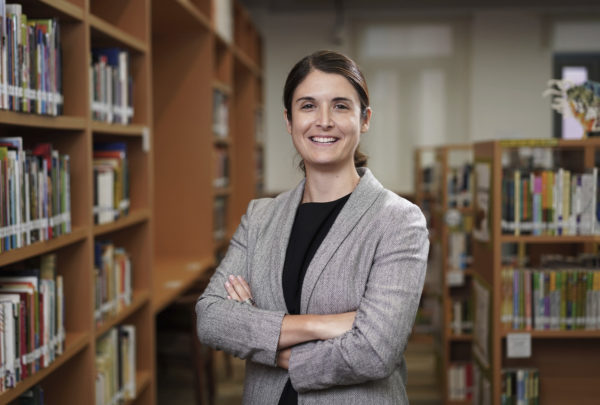
Before joining Hiba Academy Shanghai, I was the founding Head of Secondary School at the Swiss International School Qatar. This was a start-up school that offered the IB programme, and I was very lucky to be able to work with a great team to set up what quickly became one of Qatar’s most successful schools. All my experiences have given me an excellent insight into what makes a successful high school and the opportunities and support that need to be available to ensure that pupils succeed and fulfil their potential.
02 What made you decide to join Hiba?
One of the key things that attracted me to Hiba School was the bilingual model of education. I think Hiba is one of the few schools in the world that is genuinely adopting this approach in an authentic and meaningful way. I was also attracted by Hiba’s vision to educate the whole child and ensure that there is a focus on all aspects of education, not just academic results. I think this is so important in today’s world. Both Wellington and Hiba have a great reputation across the world. In my school in Qatar, I worked with a couple who had joined us from one of the WCC schools. They spoke very highly of WCC and China.
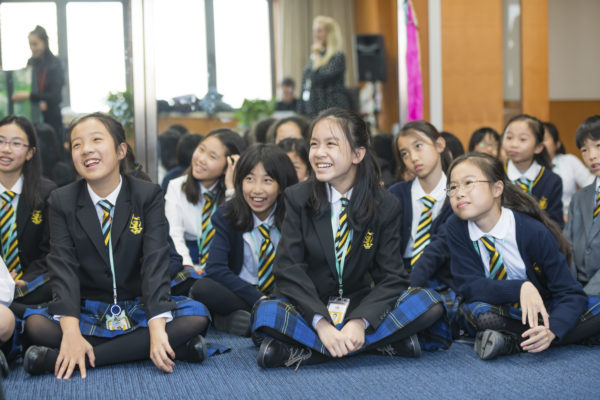
Finally, I wanted the opportunity to explore another culture that is very different from my own and to become immersed in it. What better way is there to do that than joining a school where Chinese and Western cultures mix so much and work so closely together? I have been very impressed by Hiba’s collaborative and caring approach to everything. My arrival in China was challenging due to the current pandemic, but I have been humbled by the care that has been taken to make sure that I am comfortable, looked after and feel part of the team. It is clear that pupils, and their needs, are at the centre of everything the school does. I already feel like I have been here a while and that I can make suggestions and take risks to help achieve the best for the pupils.
03 What is your outlook on your new position as the found Head of the Hiba High School?
The key thing I have learnt about starting new schools and coming into a new environment, especially one that may be very different to one’s own, is the importance of taking the time to listen and find out as much as possible about the community. This will be a key principle to bear in mind as I work to set up the High School. It is important that the High School meets the needs of Hiba pupils and gives them a world-class education. The second key thing is summarised in one word: opportunity. It will be incredibly important that pupils have as many diverse opportunities as possible in the High School. This will help them find out about themselves and what they may wish to do in the future. This includes opportunities in and out of the classroom, as it includes the opportunity to study different courses, the opportunity to learn in different ways and the opportunity to take part in as many activities as possible outside the classroom.
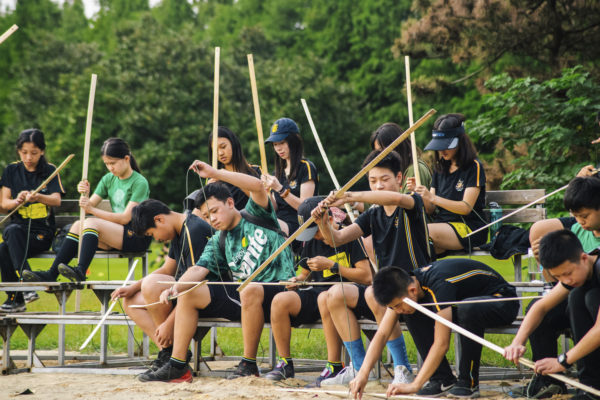
The biggest difference this time around is that I will have a year to plan and to get to know the Hiba community. This is incredibly valuable in ensuring that everything is ready for the start of Hiba High School. The biggest challenge, but I think also a very exciting one, is coming into a community that already exists and trying to add something new. It is very important that Hiba High School still feels like Hiba Shanghai but also has its own identity that is appropriate for the age group it serves. With High School, there will be certain expectations, responsibilities and privileges granted for pupils, so they must be prepared for this. Two aspects of education I am very passionate about are pupil leadership and service learning. I would like Hiba High School pupils to be leadership ambassadors for the school who can take on responsibility and learn valuable skills in the process while acting as role models for younger pupils. I also strongly believe in service learning and community work to engage with the local, national and global community, so I would love to introduce aspects of community and service into Hiba.
04 What will be your focus in the 2020-21 academic year?
The key focus for this year will be preparing our pupils and staff for the start of the IGCSE courses. Pupils and their families must understand the different courses that we have available and what those courses will mean in terms of future choices and aspirations. Our staff will be writing the IGCSE schemes of work and attending training ahead of teaching the courses next year. Another key thing for me to focus on is getting to know the pupils and their families and Hiba in general.
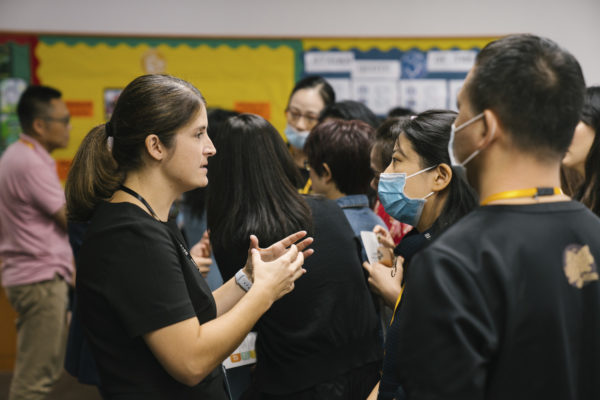
I will also be recruiting staff for the high school and making sure we have all of the support in place for things like university applications and careers advice. This support and preparation must start early. We will also need to register to become a Cambridge school, so we can offer the IGCSEs. Then we will need to start our application to become an IB school so we can offer the Diploma Programme. The IB process is especially long and rigorous and we will need all members of our Hiba community to work together to make sure we are successful. So, it will be a very busy year!
05 What would you like to share to the will-be high school pupils for their future path to world top universities?
I remember asking one of my Oxford tutors about the admissions process and what they were looking for when they admitted me and the rest of my classmates who were studying English at the time. She explained that universities were looking for two key things: capacity and potential. University admissions tutors want to know that pupils have the capacity to do even more and even better than the top grades they have already achieved. They also want to see that pupils have the potential to do well at a particular university, and so can develop the thinking and analysis skills needed. I asked if they looked carefully at all the non-academic activities that pupils did. Her answer was interesting. She said they looked to see that pupils had done a range of activities, but it did not matter so much what those activities were, so long as pupils had participated in them. She explained that this demonstrated that pupils had the capacity to study and work hard while also having other interests. They preferred this to pupils who had just studied to get their top grades, which suggested they may not cope with the much heavier workload of a top university. Of course, every university is different, and tutors look for different things, so research is key. My advice to anyone looking to study at a top university like Oxford is that you must have a genuine interest and passion in the subject you wish to study, and this interest must go beyond the content you study at school.
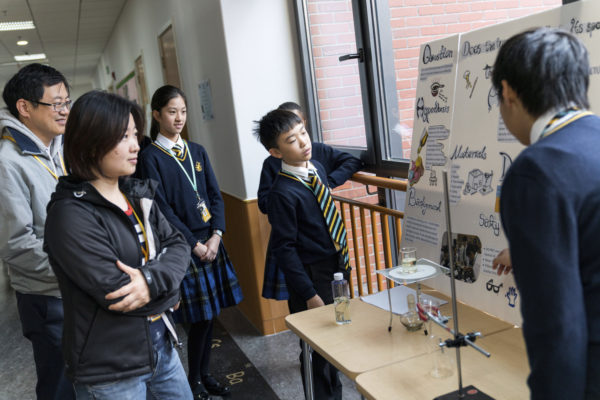
My second piece of advice is to research the courses and universities very thoroughly before making a decision. The same course at two universities can be very different and this may affect your enjoyment and ability to succeed in that course. The way courses are taught may be very different and what the university is looking for from its applicants can also vary from university to university. Finally, pupils who are aiming for the top universities should prepare early and take on board advice and feedback from their teachers. Applications take a long time and can involve many steps, such as additional tests and multiple interviews. It is important to prepare for all these steps while also making sure that pupils keep up with their studies. There is no substitute for getting the top academic qualifications. Every single pupil that applies to a top university is already predicted to achieve the grades that the university needs; they are considered a minimum, so the other aspects of the application and the genuine interest in the subject are very important. I know that some courses at places like Oxford have a ratio of 3 applications per place, which can appear to look quite low, but the thing to remember is that every single one of those applicants is already predicted and will probably achieve the grades needed. It is the performance at interview and in the other aspects of the application that make all the difference.
06 What will be the advantages that the pupils pursue their higher education abroad after they finish the international high school study?
Pupils who graduate from Hiba will have obtained world-class qualifications, like the IGCSEs and the bilingual IB Diploma. These are very rigorous qualifications that are accepted and hugely respected by universities all over the world. Our pupils will also be fully bilingual and able to operate in Chinese and in English.Studying abroad will provide pupils with a lot of choices, both in terms of universities and the courses they wish to pursue. It will also allow them to explore a different culture and way of life, which will make them much more independent and self-reliant. After university, pupils will be able to do anything they want anywhere they want. They will be highly employable global citizens with an awareness of different cultures. I understand that Hiba’s mission is to combine the very best of the East and West, and our pupils who study abroad will truly encompass this vision.
07 How should we prepare our future High School pupils?
High School is a time when three questions begin to be answered: what am I good at, what do I enjoy and what do I want to do in the future? These three questions should be at the core of all decisions made in the High School. If you can find one thing that answers all three questions, then you will be in a very strong position for the future. This is why it is important to create different opportunities for pupils, as they help them answer these questions. Similarly, it is in High School that pupils begin to develop a more independent sense of self. This comes with the opportunity to make choices about things like IGCSE courses, the DP courses, topic choices for the Extended Essay, activities for Creativity, Activity and Service (CAS) and eventually university choices. If pupils can develop this sense of self, then they can make confident choices and if they are happy with their choices then they are much more likely to enjoy what they are doing and be successful.
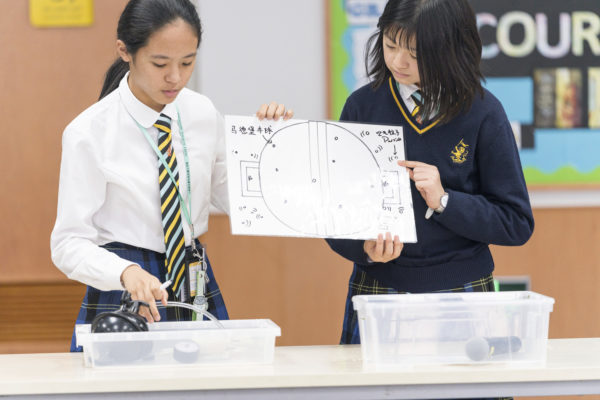
For our Junior High pupils, High School will be different but also very familiar. This is the best of both worlds. Pupils will become more mature as they enter a new setting and a new stage of schooling, but they will still have the familiarity, comfort and support of familiar faces around the school and teachers that they already know. This will mean they have the best support possible. The biggest challenge for pupils entering High School will be with regards to independence and the ability to self-regulate and self-manage. There is a lot of work for pupils and this needs to be managed. There will also be formal external exams at the end the IGCSEs and then things become even more challenging with the IB DP. Pupils will need to manage their time and workload. There will be deadlines, assessments, assignments, group projects, as well as decisions to make about courses and universities. It can seem quite daunting, but with the right support in place, we will make sure that it’s a challenge our pupils enjoy.
08 How can we best maintain the line of communication between the parents and our school?
The fact that Chinese parents are so dedicated to their children’s education is a great thing and something that should not be taken for granted. This is the first step in ensuring that pupils are successful, as they will have the support from home. The pupils must be at the centre of everything the school does, and this can only be achieved if the school works in partnership with the parents.
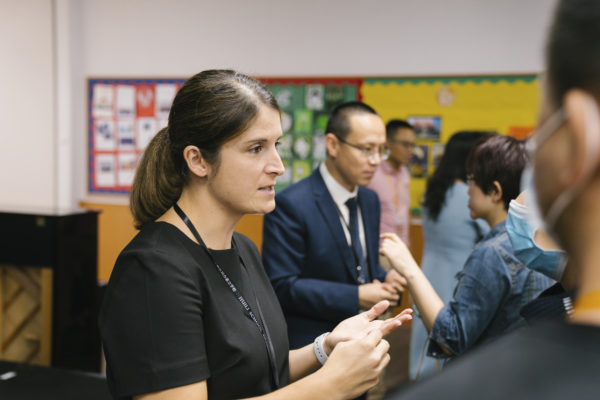
Throughout this year, we will make sure that parents are informed about what is going on in school and are aware of all the steps in their son/daughter’s journey towards High School and beyond. One way we will do this is through regular parent workshops where parents will have the opportunity to find out about the High School, thus parents can support their children in the process. I also firmly believe in the principle of ‘no surprises’ when working with pupils and parents. Parents should be informed when things are going well and when they are not going so well. Therefore, regular and clear communication is very important. Similarly, parents need to know that they can always ask questions and ask for a conversation. We want to thank Lana for sharing her experience and insights. In the coming days, she will hold a series of parent workshop to share more ideas with Hiba community. We are confident that her expertise will be a valuable asset to the long-term development of Hiba High School and our pupils.